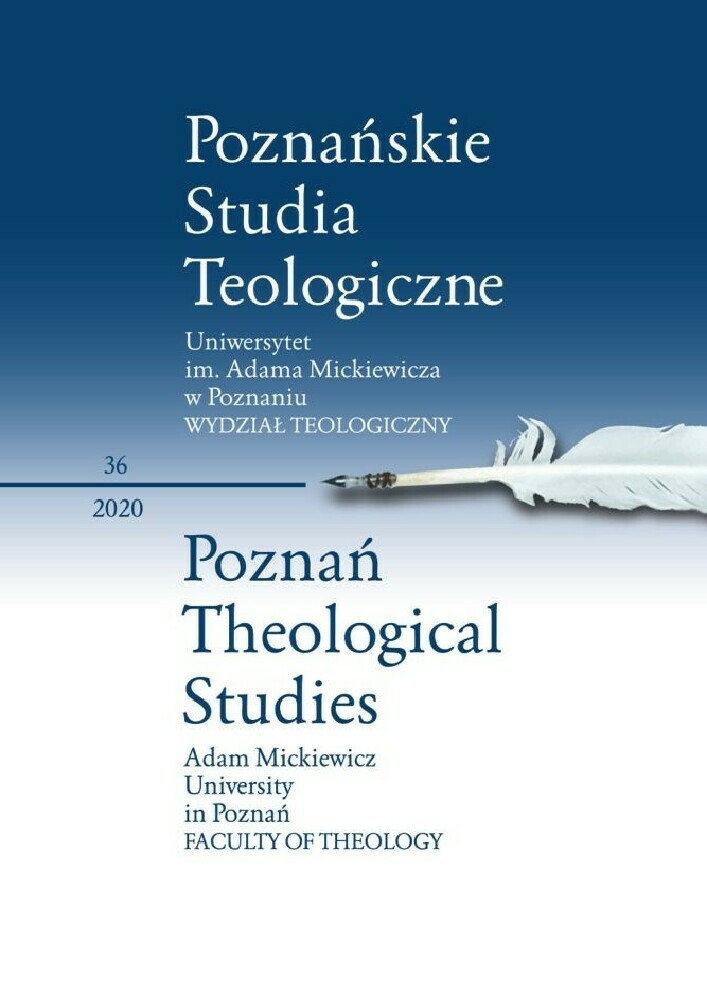Abstract
The Joint Declaration on Justification is the greatest achievement in the Catholic-Lutheran theological dialogue. In connection with the 20th anniversary of the signing of the Joint Declaration, the critical points of this document will be recalled. However, the document deserves much more than a reminder: its reception should continue. The lack of reception of the Joint Declaration would be a step backwards for Lutherans and Catholics on their way from conflict to community. Therefore, this paper will indicate the selected attempts of the reception of the Declaration. A threat to the Declaration would be not only the lack of reception, but also the context of post-modernity. Polish Catholic theologians have undertaken the task of reception of the Joint Declaration, and so it is in progress. Many treaties of dogmatic theology have room for the doctrine of justification. The task of the reception of the Joint Declaration it is not a matter of reinterpreting the whole of dogmatic theology in the light of the doctrine of justification, but of broadening individual treaties by showing their connection with justification. The teaching of justification is incomprehensible to many contemporary people, who are no longer interested in Martin Luther’s question, “where will I find a gracious God?”, that is, where will I find justification of a sinner by grace. The contemporary man does not consider himself to be a sinner at all, but a victim of various circumstances, and therefore, he seems to be reversing the problem: it is God, and not man, who needs justification, e.g. God should justify Himself before people because He allowed Auschwitz. While in the field of theology we find this reversal of the understanding of justification, outside theology, the terms used in the Joint Declaration no longer belong to the idiolect of the contemporary man. This applies above all to such terms as grace, sin and justification. Instead, we are witnessing a reinterpretation of these terms in the spirit of deep ecology promoted by the New Age movement.
Riferimenti bibliografici
Bonhoeffer D., Naśladowanie, tłum. J. Kubaszczyk, Poznań 1997.
Czym jest wiara? Odpowiedź papieża seniora Benedykta XVI, “Przewodnik Katolicki” 13 (2016), p. 22.
Deklaracja o usprawiedliwieniu: historia powstania, tekst deklaracji, opinie, komentarze, red. K. Karski, Bielsko-Biała 2000.
Ferdek B., Nasza Siostra — Córą i Matką Pana, Świdnica 2007.
Ferdek B., Odpust w świetle „Deklaracji o usprawiedliwieniu”, “Wrocławski Przegląd Teologiczny” 8 (2000) 1, pp. 37–45.
Granat W., O łasce Bożej udzielanej przez Chrystusa Odkupiciela, Lublin 1959.
Hunsinger G., The mediator of communion: Karl Barth’s doctrine of the Holy Spirit [in:] The Cambridge Companion to Karl Barth, Cambridge 2000, pp. 182–187.
Jaklewicz T., Święty grzesznik, Lublin 2006.
Jan Paweł II, Znak nadziei na jedność w wierze, OsRomPol 219 (2000) 1, p. 44.
Jüngel E., Paradoxe Ökumene, Zeitzeichen, “Zeitzeichen” 11 (2000) I, p. 6.
Kijas Z.J., Traktat o Duchu Świętym i łasce [in:] Z.J. Kijas, E. Piotrowski, Traktat o Trójcy Świętej. Traktat o Duchu Świętym i łasce, (Dogmatyka), t. IV, red. J. Majewski, Warszawa 2007, pp. 321–656.
Kołakowski L., Jezus ośmieszony. Esej apologetyczny i sceptyczny, Kraków 2014.
Lüning P., Miggelbrink R., Urban H.J., Wanke J., Zum Thema: “Gerechtfertigt durch Gott — Die Gemeinsame Lutherisch/Katholische Erklärung”, Paderborn 1999.
Napiórkowski S.C., Bóg łaskawy. Nad „Wspólną deklaracją o usprawiedliwieniu”, Warszawa 2001.
Napiórkowski S.C., Wspólna Deklaracja o usprawiedliwieniu. Czy początek końca reformacji?, “Sympozjum” 1 (2000), pp. 61–94.
Papieska Rada ds. Kultury, Papieska Rada ds. Dialogu Międzyreligijnego, Jezus Chrystus dawcą wody żywej. Chrześcijańska refleksja na temat New Age, Kraków 2003.
Pontifical Council for Promoting Christian Unity, ‘Annex’ to the Official Common Statement, https://www.vatican.va/roman_curia/pontifical_councils/chrstuni/documents/rc_pc_chrstuni_doc_31101999_cath-luth-annex_en.html.
Porada R., Kościół w dziele usprawiedliwienia. Ekumeniczno-dogmatyczne studium dokumentów dialogu katolicko-luterańskiego na forum światowym, Opole 2000.
Quadt A., Evangelische Ämter: gültig — Eucharistiegemeinschaft: möglich, Mainz 2001.
Skowronek A., Odpusty — zabytek religijnego muzealnictwa?, “Jednota” 2 (2000), p. 14.
Spiteris Y., Ostatni Ojcowie Kościoła. Kabasilas. Palamas, tłum. B. Widła, Warszawa 2006.
Tomasz z Akwinu św., Suma teologiczna I–II, 113/9, red. S. Bełch, tłum. R. Kostecki, Londyn 1973.
Uglorz M., Marcin Luter Ojciec Reformacji, Bielsko-Biała 1995.
Zieliński T.J., Iustificatio impii. Usprawiedliwienie sola fidei jako główny artykuł wiary protestancko konserwatywnego nurtu Kościoła Anglii, Warszawa 2002.
Licenza
© 2020 Uniwersytet im. Adama Mickiewicza w Poznaniu, Wydawnictwo Naukowe UAM, Poznań
OPEN ACCESS

